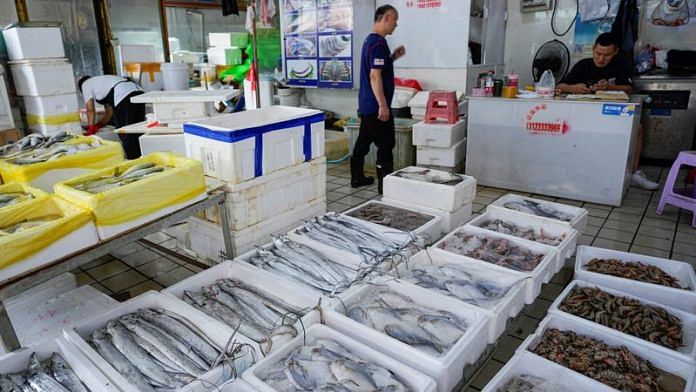Soma: United States ambassador to Japan Rahm Emanuel visited Fukushima on Thursday and told reporters he expected the U.S. to support Japan should China’s ban on Japanese seafood develop into a spat at the World Trade Organisation (WTO).
“If Japan decides to take that effort, the United States will stand by (it) not just because they’re an ally, but because there’s legitimacy to the case,” he said, although he added he cannot prejudge what would happen and such support would ultimately be up to the relevant U.S. government agencies.
Japan started releasing treated radioactive water from the wrecked Fukushima nuclear power plant into the Pacific Ocean last Thursday, prompting China, Japan’s biggest trade partner, to impose a blanket ban on Japanese aquatic products.
Japan has since sought an immediate end to the ban and threatened to resolve the matter through the WTO framework. Japan has also complained of being inundated with harassment calls since the water release.
“The economic coercion against Japan, the robocalls of harassment and disinformation both here in Japan and around comes right out of China’s playbook. This is all politics,” Emanuel said.
Japan’s Prime Minister Fumio Kishida said he would compile measures to help the fishing industry hit by China’s ban on Japanese seafood, after visiting Tokyo’s biggest fish market on Thursday.
The government will tap additional funds, tens of billions of yen (hundreds of millions of dollars), from the government’s budget reserves for the current fiscal year to fund the measures, the Nikkei reported.
Kishida told reporters following the visit to Toyosu fish market that requests from fishers included support to help fishing companies develop new sales avenues and holding discussions with China.
Tokyo’s government has set up two funds worth 80 billion yen ($548 million) to help develop new sales channels and keep excess fish frozen until they can be sold when demand recovers, among other measures. Officials have previously denied the possibility of additional fiscal measures for the industry.
Japan exported about $600 million worth of aquatic products to China in 2022, making it the biggest market for Japanese exports, followed by Hong Kong, which announced its own ban on seafood imports from 10 Japanese regions after the Fukushima release.
Some Japanese officials have also signalled diplomatic actions to urge China to lift the ban, which Tokyo says is not based on scientific evidence, including filing a World Trade Organization (WTO) complaint.
($1 = 146.0200 yen)
(Reporting by Chris Gallagher in Soma, Sakura Murakami and Kantaro Komiya in Tokyo; Editing by Stephen Coates, Lincoln Feast and Michael Perry)
Disclaimer: This report is auto generated from the Reuters news service. ThePrint holds no responsibilty for its content.
Also read: Japan aims to restore fish catch to 2010 level; no Fukushima water impact seen



